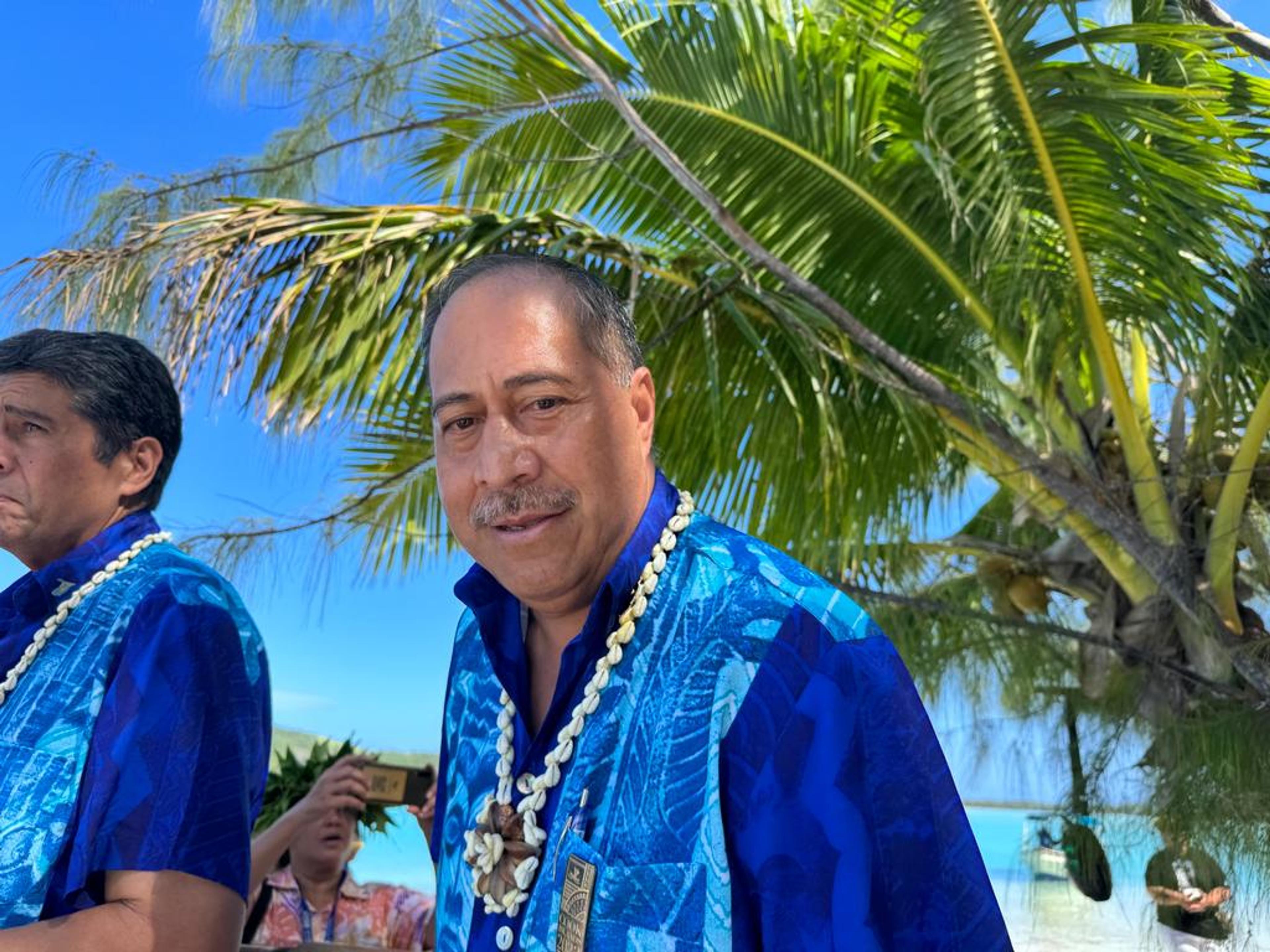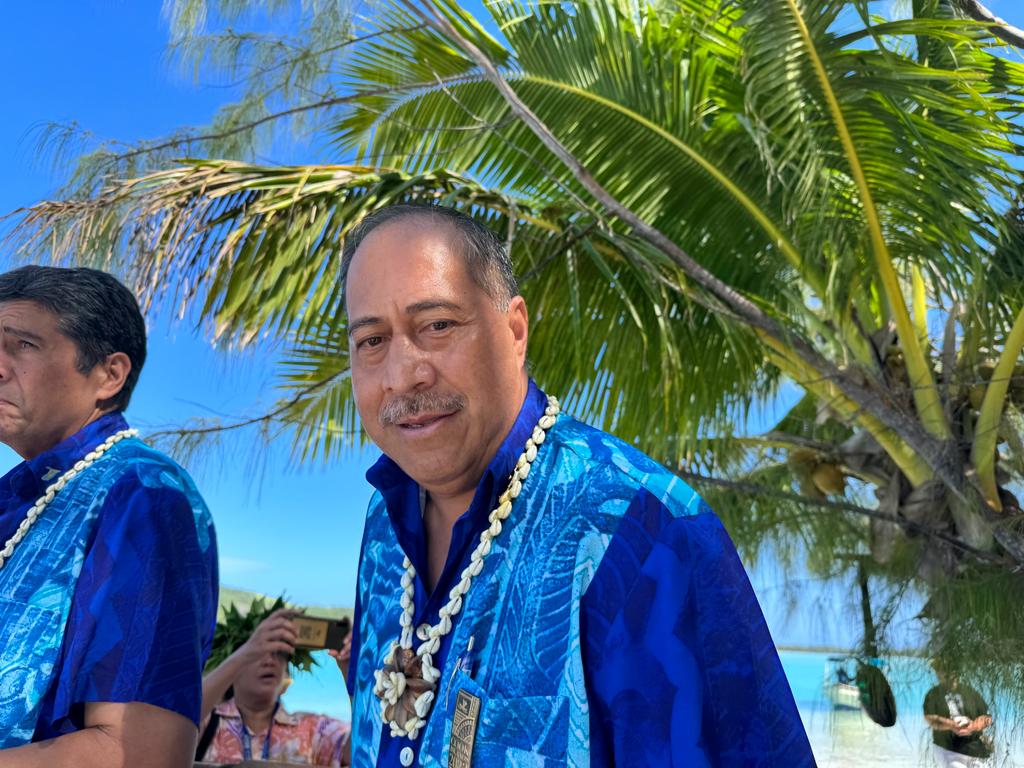

Niue's Premier Dalton Tagelagi.
RNZ Pacific
Niue Parliament passes constitutional amendments in first reading
Premier Dalton Tagelagi had sought nine changes to the country’s constitution in Parliament, but only four amendment bills were referred to the review committee by the Fono Ekepule.

Christmas under the sun: How Pasifika are celebrating amid rising heat, extreme weather



Niue’s Legislative Assembly or Fono Ekepule has passed the first reading of four amendment bills to the country’s Constitution, the government says.
This is the second time changes have been made to the Niuean Constitution since independence 50 years ago.
Speaker Hima Douglas told PMN’s Island Time that Premier Dalton Tagelagi had sought nine changes to the document, but Parliament has only accepted four recommendations and referred them to the Constitution Review Committee.
Watch Hima Douglas’ interview on Island Time below.
Douglas said the proposals, under the amendment bills, include increasing Cabinet from four to six and expanding the term of the Assembly from three to four years.
Another planned amendment is changing the title of the head of government from "premier" to "prime minister" and changing the name of the audit office of New Zealand.
Tagelagi had initially asked the Fono to proceed to the second reading of the bills but it referred the Bills to the review committee
“We are one of the very few countries in the region where we’ve only had one change, in the 1980s, to our constitution in the past 50 years,” Douglas said.
“Some of our neighbours have had several changes, which means that the founders of our constitution have done an excellent job in making sure that our constitution is adaptable as the years go or that we’re just not quite ready to change anything in the constitution.
“The current government seems to think that we need some change. In the previous parliament when I was the speaker, there was an attempt to review the constitution. But at that time, we were in the middle of the global Covid pandemic and I think the approach was slightly different.
“Premier Tagelagi proposed to the assembly in a motion that we should be looking at nine specific things that he picked to the Constitution Review Committee which decided that perhaps it was more realistic if we had only four things to amend at this point so that’s where we are at.”
Chair of the review committee Billy Talagi has announced his support of the proposed amendments.
Speaking in Vagahau Niue to local media, Talagi said the “purpose and objective” of the Constitution Review Committee is to ensure that the public is involved in the amendment process.

Niuean Premier Dalton Tagelagi had sought nine changes to the country's Constitution. Photo/RNZ Pacific
Douglas said Niue has 14 village seats in parliament and as the island's population has decreased, the number of voters there is often minuscule.
“One of the areas being proposed is to change the title of premier to prime minister. Another is to change the composition of the Cabinet to increase the numbers from four to six, and that will consist of if passed, five ministers plus the premier as the chair of the cabinet.
“Another one is to change the term of our small parliament from three years to four years, and the fourth one is more of a technical requirement.
“In 1974, when the Constitution was drafted, there was a reference to the audit office of New Zealand. The change that has been proposed is to change the audit office of New Zealand to the Auditor General.
“In 1974, the Auditor General was a public servant. Now, the New Zealand Parliament has changed it so that the Auditor General is now actually an officer of Parliament. We wanted to change it so that the Auditor General is an officer of our Parliament which will bring it in line with the NZ situation.”
Douglas said the reason there were four different Bills was that in previous amendments to the Constitution, there was only one Bill brought in.
But he said on that one Bill, there would be several amendments "so if you were a voter, you could only tick once. So you either agree to all the changes or if you don’t, you can put a cross.
"For example, six changes being proposed, and if you liked only three, you had to sacrifice them to pass the rest or just decline or just put a cross on it. But this time around, each amendment is taken care of by its own Bill."
The amendments will return to the Fono Ekepule for a second reading at the end of April, Douglas said, before a public referendum, and then the third and final readings.